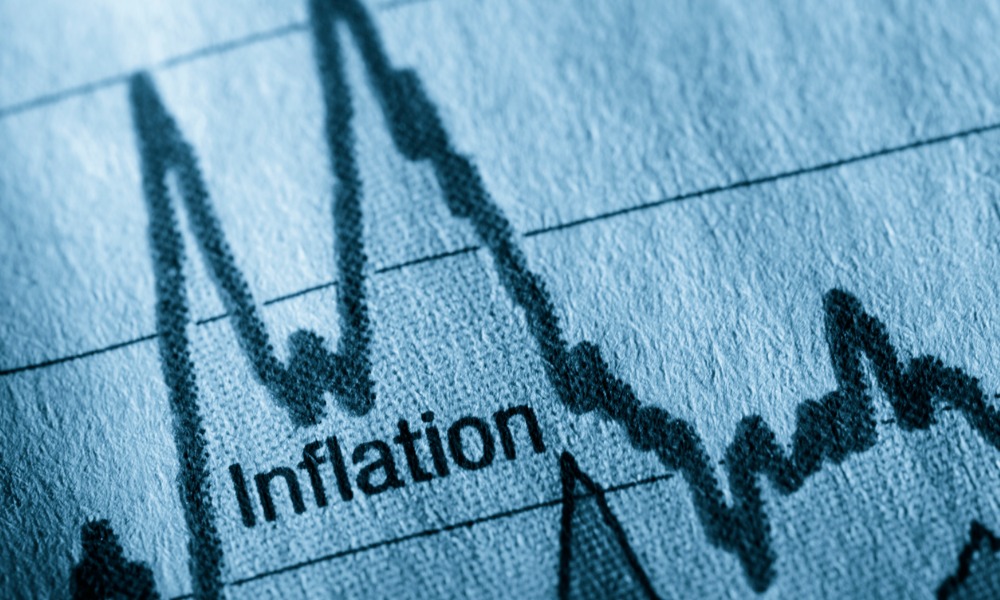"It's not enough for inflation to turn, it has to drop fast," economist says

Economists seemed to agree that inflation would go down after hitting an annual rate of 7.3% in the June quarter, but what they were less sure about was how fast it would fall.
Read more: ASB economist reacts as inflation reaches new high
The rate of decline was of interest not only to people managing a budget or to those trying to work out what sort of pay rise to ask for, but it would also likely determine whether fixed mortgage rates have hit their peak, as Kiwibank forecasted, or if they would climb higher.
“It’s not enough for inflation to turn, it has to drop fast, and I think that’s a risk that’s underappreciated by markets,” Sharon Zollner, ANZ chief economist, told Stuff.
If the Reserve Bank’s forecasts prove correct, inflation will have dropped to 5.8% by Christmas and to 3.8% by the end of next year. BNZ expects inflation to fall significantly faster, to 5.2% by Christmas and 3.1% the year after. ANZ, on the other hand, predicts a slower easing of inflation, to 6.1% by the end of the year, then a crash to 2.5% by the end of next year.
Economists widely agreed on why inflation should have already peaked.
Central banks around the world have adopted a tough stance on inflation, lifting interest rates even in the face of depleting confidence and growing fears of recession. Meanwhile, most commodity prices have stabilised or are already retreating after a spike following Russia’s war on Ukraine, Stuff reported.
Read next: Extra gov't spending won't have much effect on inflation – ASB
Paul Gruenwald, S&P’s global chief economist, said economies were clearly slowing, although indicators of sentiment looked “gloomier than the real data.”
“Some inflation indicators appear to be peaking,” Gruenwald said at a seminar on Tuesday. “But that was also the case about a year ago, so we'll need to see more data.”
Behind the varying forecasts on how quickly inflation may drop in New Zealand lie different assumptions about just how tough a nut domestic inflation will be.
Stephen Toplis, BNZ research head, said falling global commodity prices combined with a softening housing market will “meaningfully” impact inflation in the current quarter.
Toplis predicted “the initial drop will be marked.”
Craig Ebert, another BNZ economist, believed the central bank was feeling confident it was “getting close to getting on top of things.”
But ANZ’s Zollner seemed more pessimistic, as he warned that there was a lot of uncertainty about how “sticky and persistent” inflation would be. She held that the Reserve Bank was “nowhere close to getting around this inflation problem yet.”
Much may depend on what now unfolds in the labour market.
Economists were universally expecting a rise in unemployment, with the Reserve Bank tipping the official unemployment rate to climb further from 3.2% in the June quarter to 4.5% by the end of next year.
While the change might seem fairly modest, what has the most potential to impact inflation was not so much unemployment itself, as a drop-off in hiring, Stuff reported.
There was increasing evidence – at least internationally – that wage inflation was driven mostly by workers changing jobs for higher pay, rather than employers offering pay rises to their existing staff.
According to a recent report by the United States’ Pew Research Centre, the typical US worker who changed jobs in the year to the end of March saw their pay increase by 9.7% more than the rate of inflation. In comparison, the typical worker who stayed in their job saw their real wage drop by 1.7%.
A number of international wildcards could have a knock-on effect on inflation here and whether the economy experiences a soft or hard landing, economists speaking at S&P’s seminar observed.
Gruenwald said China has been “the number-one driver of global growth over the last couple of decades,” contributing about a third of total global economic growth, but that there has never been a year in which Chinese authorities missed their growth target by such a wide margin.
“Premier Li Keqiang was talking about 5½% growth earlier this year and it looks like China is going to come out with something closer to 3%, and that has impacts not just for China, but for the rest of the world,” Gruenwald said.
Nick Tuffley, ASB chief economist, noted that Russian president Vladimir Putin “holding his foot on the throat of Europe’s gas supplies” is “certainly having an impact on European growth.”
The impact of the war on Ukraine though could be dwarfed by the potential impact of recent wild weather events around the world, Tuffley said.
“You've got droughts in Europe, you've got phenomenal droughts in China,” Tuffin said. “And over the next year, that could potentially have some profound impacts on what will happen to food prices, that may compound the impacts of the war.”
Considering these concerns, movements in inflation may not all be one-way traffic, Stuff reported.



